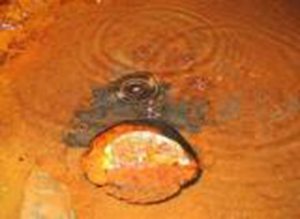Toronto, Dec 18: Scientists have discovered the oldest water samples on Earth that date back to about two billion years and may hold clues to life forms living far beneath the surface of Mars or other alien planets.
Researchers have known that water exists far below the ground-water that has been isolated from the water table - unseen and untouched for billions of years.
To learn more about such water, scientists from University of Toronto in Canada have been working with mining companies. As miners go deeper, the researchers gain access to ever deeper sources of water.
In 2013, the researchers had found a water sample from mine in at about 2.4 kilometres that was subsequently dated to 1.5 billion years ago.
The new record holder was found at three kilometres deep. The researchers determined the age of the water samples by studying dissolved gasses, 'Phys.org' reported.
They also reported that the samples they obtained came from a large source that was flowing out of the ground at a rate of several litres per minute - much larger than has been predicted.
They discovered that sulphate in the water had come from interactions between the water and the rocks around it, rather than from another source, which suggests that the water was capable of sustaining life.
If such microbial life does exist somewhere deep below the surface, it would represent a form of life that has evolved separately from all other life on Earth.
It would also suggest that space scientists might have to consider the possibility of similar forms of life living far beneath the surface of Mars or other planets.





Comments
Add new comment